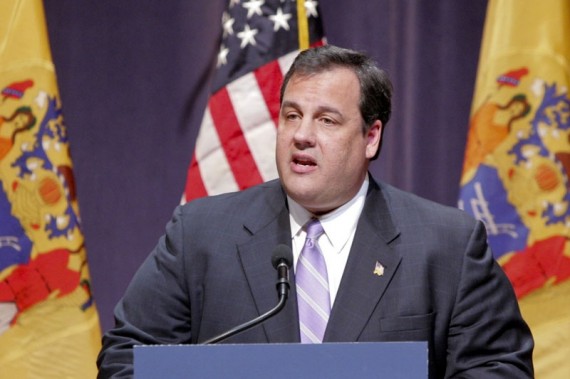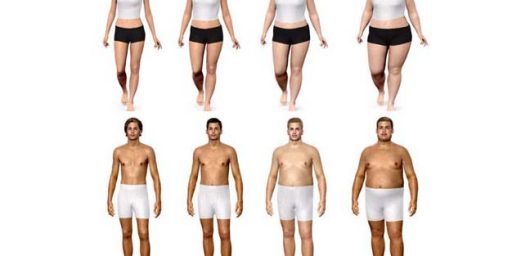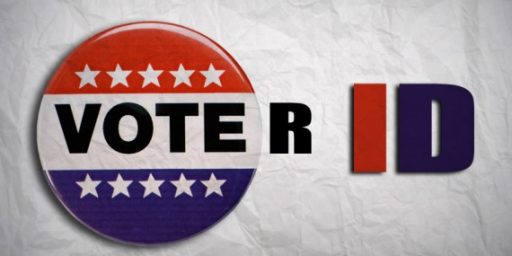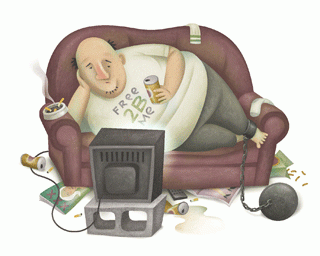Some Political Science on Obese Candidates
Some actual political science suggests that being an overweight male candidate may not be a negative for voters.
 There is a great deal of conventional wisdom concerning the appearance of candidates. We are often told that the tallest candidates always win or, more vaguely, that some candidates look more “presidential” than others. The fact of the matter is a lot of this is based on a combination of the biases of the observer and generalizations based on a very small number of cases (i.e., there are only a handful of presidential contests, especially in the modern media era, by which to test these assertions).
There is a great deal of conventional wisdom concerning the appearance of candidates. We are often told that the tallest candidates always win or, more vaguely, that some candidates look more “presidential” than others. The fact of the matter is a lot of this is based on a combination of the biases of the observer and generalizations based on a very small number of cases (i.e., there are only a handful of presidential contests, especially in the modern media era, by which to test these assertions).
Doug Mataconis (and here) noted the other day that there was some speculation in various columns that New Jersey Governor Chris Christie’ weight would be a detriment to him should he choose to run for the GOP nomination. Doug specifically noted columns by Eugene Robinson and Michael Kinsley who argued that the Governor’s weight would be an impediment to office.
Political scientist John Sides at the Monkey Cage took issue with these (specifically Kinsely’s) assertions and pointed to some studies on obesity and its affects on voters:
Here again is my post from three weeks ago. And here is the paper it discussed, by Beth Miller, Jennifer Lundgren, Diane Filion, and Lauren Thompson. In their study, obese male candidates were actually evaluated MORE POSITIVELY than non-obese male candidates. This is hardly the last word on the subject, but, you know, it seems relevant.
The Miller, et al., study reached the following conclusions:
participants in this earlier study indicated a tendency to evaluate nonobese male candidates less positively than their obese counterparts. Our present research enabled us to verify this surprising finding as nonobese male candidates received the least favorable ratings on the subjective measures among participants in the study….Participants reacted more negatively to the obese female candidates than they did to the nonobese female candidates, obese male candidates, and nonobese male candidates.
As John notes, this is just one study and hardly the definitive word on the subject (although a previous study by Miller and Lundgren did have similar findings). It does suggest an avenue for additional study, to be sure. It also shows the punditry is not the same thing as systematic study.
There is also a niggling question about Christie’s weigh that seem to be ignored by these columnists is that he did get elected to one of only 50 jobs in the country, which would suggest that at least a majority of voters in NJ were not negatively impacted by his weight. Of course, New Jersey isn’t a proxy for the entire country, but still, the point here would be that if weight was the issue that Kinsely and Robinson were making it out to be that it should have been more of an impediment in Christie’s career.






I think much of the problem here is the perception that Christie’s weight is an issue for other people. Or maybe they’re just worried about the unending parade of fat jokes, which –let’s be honest– are rarely ever funny.
I honestly don’t get the analysis. The idea of a big fat guy being in charge is almost cliche. Put a big ass cigar in his mouth and he could be any CEO or gangster in a movie. Kingpins are fat. Skinny people don’t project power.
My uneducated guess is that the moderately fat candidates just look sloppy. Once you get to Christie levels, he just looks different — possibly projecting power, possibly even projecting a force of will to not let his significant weight hold him back in politics.
Of course, it opens him up to fat jokes, but those are probably less worse than people paying attention to his policies.
This is not accurate: both columnists argued that the Governor’s weight should be an impediment to office. That distinction is fundamental to the whole debate.
Christie’s weight has been adversely affecting his health. A few months ago he was briefly hospitalized for a weight-induced asthma attack. What will be next?